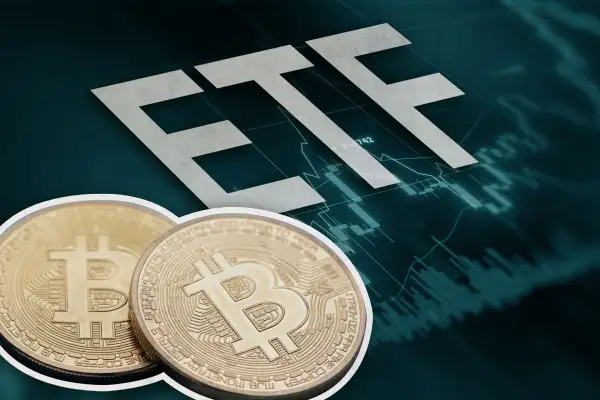U.S. Investors Are About to Get a New Way to Bet on the Price of Bitcoin
Money is not a client of any investment adviser featured on this page. The information provided on this page is for educational purposes only and is not intended as investment advice. Money does not offer advisory services.

A bitcoin futures exchange-traded fund (ETF) is finally here.
The ProShares Bitcoin Strategy ETF, the closest thing U.S. investors have thus far to a bitcoin ETF or mutual fund, will start trading Tuesday on the New York Stock Exchange.
Cryptocurrency advocates have championed the idea of bitcoin ETFs for years, and would have likely preferred a fund that owned bitcoin directly, as opposed to one that holds futures contracts that merely track to bitcoin price fluctuations. But the fund may nonetheless represent a big step in making it easier for individual investors and financial advisors to own bitcoin alongside stocks and bonds in their traditional investment portfolios.
The Securities and Exchange Commission was widely reported to have given the fund a green light on Monday.
What is a bitcoin futures ETF?
Exchange-traded funds are baskets of securities -- usually stocks or bonds -- that trade on the stock exchange like a stock. (Other mutual funds can be bought and sold just once daily.) While many ETFs represent large baskets -- owning, say, all the stocks in the S&P 500 -- others are narrower, targeting just energy or technology stocks or just a single commodity like gold or silver.
Futures contracts -- essentially bets between two investors on where the price of a certain good will be on a future date -- have been used to speculate on the prices of commodities including oil and wheat and currencies like the Dollar and Yen for decades. Bitcoin futures started trading in the U.S. in late 2017.
Unlike stocks in a mutual fund, a bitcoin futures contract does not actually represent ownership in bitcoin. Rather the two sides of the contract settle their bet for an equivalent amount of cash on the appointed date. Since certain ETFs have long owned futures contracts, the bitcoin ETF's designers persuaded the SEC this format would be more acceptable from a regulatory perspective.
This approach comes with added risks for investors, however. Because futures contracts represent a bet on the price of bitcoin at some date in the future, the contracts' values will not perfectly reflect the value of bitcoin today. Investing experts have been debating the extent to which the returns of the bitcoin ETF could deviate from the returns of bitcoin itself. A similar ETF that tracks oil futures, has experienced significant problems.
Why has it taken so long?
The cry for a bitcoin ETF has gotten louder in recent months as the crypto's price has soared. Advocates say that allowing investors to invest in a bitcoin ETF through traditional brokerage accounts would be help people who want to buy crypto, but don't want to have to create a separate account and track individual cryptocurrency prices themselves.
“There are going to be people who like crypto who never get in because they’re not going to feel comfortable holding 20 different coins on a jumpdrive,” Ben Weiss, CEO of CoinFlip, which provides bitcoin ATMs previously told Money. “An ETF is a way for people to invest in cryptocurrency without actually having to purchase it directly and without having to custody it themselves.”
But the SEC has concerns over bitcoin's volatility and potential for fraud. Bitcoin also isn’t technically a security, which the SEC has decades of experience regulating. In March 2021, SEC chair Gary Gensler promised to provide "guidance and clarity" on cryptocurrency regulation, though the agency has yet to unveil any specific rules.
So a bitcoin futures ETF — which doesn't involve investors actually holding the volatile asset — may be a way for the SEC to address the mounting pressure it's faced to approve a bitcoin ETF, especially as the U.S. falls behind other countries, like Canada, which have recently done so.
A bulletin the SEC posted about trading bitcoin futures in June warned that would-be investors should carefully consider their own risk tolerance, a fund's disclosure of its risks, the potential financial loss that is heightened with the high volatility of bitcoin futures, and the fact that a rise in bitcoin's price doesn't necessarily translate to a similar increase of a futures fund.
As the SEC's office of education and advocacy tweeted last week: "Before investing in a fund that holds bitcoin futures contracts, make sure you carefully weigh the potential risks and benefits."
More from Money:
When Will U.S. Investors Get a Bitcoin ETF?
Coinbase's New Direct Deposit Feature Will Let You Get Paid in Crypto

